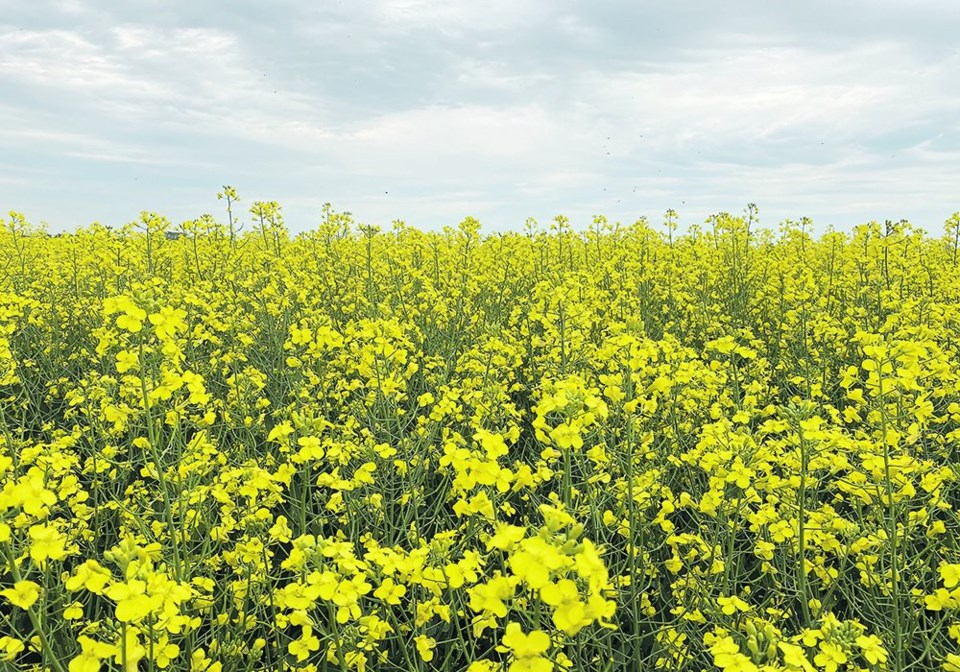WESTERN PRODUCER — The most controversial patent in all of agriculture will cease to exist next year.
Bayer’s Roundup Ready canola patent expires on April 26, 2022.
It was at the heart of a lengthy legal battle between Monsanto, which owned the patent before being acquired by Bayer in 2018, and Bruno, Sask., farmer Percy Schmeiser.
The case went to the Supreme Court of Canada, which, in a 5-4 decision, ruled that Schmeiser had infringed Monsanto’s patent.
Hollywood recently made a movie about the famous legal battle starring Christopher Walken as Schmeiser.
Bayer spokesperson Trish Jordan said not much is going to change for growers, at least over the next couple years.
Farmers who want to plant the original Roundup Ready canola in 2022 will still be able to do so because the patent expires long after growers will have sourced their seed for spring.
After that, however, Bayer’s DeKalb canola business will be fully transitioning to TruFlex, its second generation of Roundup Ready technology. It will no longer be selling the original trait following next year.
Bayer is giving its seed partners one more year to make the same transition, so growers will likely still have some options for sourcing Roundup Ready canola in 2023.
Jordan noted the growers who buy original Roundup Ready canola seed from Bayer and its partners are still subject to the technology stewardship agreement that stipulates growers can use the seed for a single season of planting, so no farm-saved seed.
“That doesn’t change post-patent,” she said.
Breeders and seed companies will be free to incorporate the original Roundup Ready trait into their germplasm after April 26, 2022.
But they won’t be able to pilfer the trait from Bayer’s Roundup Ready canola because Bayer owns that biological material. They would have to access the trait from a seed bank or some other publicly available option.
Jordan doesn’t anticipate generic versions hitting the market anytime soon because it would take time to develop and register the varieties.
“The reality is that would likely take five years for somebody to have a product they could bring to market,” she said.
“The likelihood of that happening is probably pretty remote because you’re basically starting from scratch.”
The amount of investment would be substantial and she believes the vast majority of growers would opt to pay for Bayer’s new TruFlex technology due to its benefits.
TruFlex gives growers the ability to use higher rates of Roundup for tough-to-control weeds, has a wider window of application providing farmers an additional 10 to 14 spray days and tackles weeds that the original Roundup system was unable to control.
The Saskatchewan Canola Development Commission commissioned a study in 2007 to assess the benefits to growers of the patent expiring when it mistakenly believed it was running out in 2012.
The study showed the annual benefit would range from $56 million to $205 million due to competition from generics.
Dale Leftwich, policy manager with SaskCanola, said that study was done in a different era when smaller seed companies like BrettYoung Seeds had a bigger role in the canola business.
Today, the business is dominated by Bayer, Corteva and BASF, so he agrees that generic versions of Roundup Ready canola are unlikely.
“It would be great for farmers if there was a lowering of costs but it’s hard to see how they would be able to come in with new products that would have any amount of market share,” he said.
SaskCanola hasn’t heard of anything in the works. If there was a generic it would have to contain a lot more than just the Roundup Ready trait to be a viable option for farmers.
“If you flood the market with Roundup Ready canola that’s cheap that has no clubroot resistance or blackleg resistance you’re doing more harm than good,” said Leftwich.
He also noted that if farmers wanted the ability to save their seed it would have to be an open-pollinated variety and those are few and far between these days.




